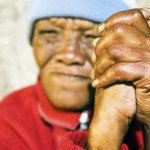
The World Health Organization’s Mental Health Gap Action Programme (mhGAP) aims to tackle mental, neurological and substance use disorders in low- and middle-income countries.
14% of the global burden of disease is made up by these disorders and many people do not have access to the treatments they need. The programme asserts that with proper care, psychosocial assistance and medication, tens of millions could be treated for depression, schizophrenia, and epilepsy, prevented from suicide and begin to lead normal lives, even where resources are scarce.
The PLoS Medicine journal has published a summary of the WHO guidelines for mental, neurological and substance use disorders in low- and middle-income countries. The priority conditions included are:
- Depression
- Psychosis
- Bipolar disorders
- Epilepsy
- Developmental and behavioural disorders in children and adolescents
- Dementia
- Alcohol use disorders
- Drug use disorders
- Self-harm/suicide
The recommendations are extensive as you would expect, but here are some of the highlights:
- Antidepressants should not be considered for the initial treatment of adults with depressive symptoms in absence of current/prior moderate or severe depressive episode/disorder.
- Anticholinergics should not be used routinely for preventing extrapyramidal side effects.
- EEG and neuroimaging should not be used routinely for diagnosis of epilepsy and starting treatment in non-specialized health care settings in low and middle income countries.
- Acamprosate, disulfiram, or naltrexone should be offered as part of treatment to reduce relapse in alcohol dependent patients. The decision to use acamprosate, disulfiram, or naltrexone should be made taking into consideration patient preferences, motivation, and availability.
- Non-specialized health care providers at the secondary level should consider initiating parent education/training before starting medication for a child who has been diagnosed as suffering from ADHD. Initial interventions may include CBT and social skills training if feasible. Methylphenidate may be considered, when available, after a careful assessment of the child, preferably in consultation with the relevant specialist and taking into consideration the preferences of parents and children.
- Thioridazine or chlorpromazine should not be used for the treatment of behavioural and psychological symptoms of dementia. Haloperidol and atypical antipsychotics should not be used as first line management. Where there is clear and imminent risk of harm with severe and distressing symptoms, their short-term use may be considered, preferably in consultation with a specialist.
- Persons suffering from any of the other priority conditions or who present with chronic pain or acute emotional distress should be asked about thoughts, plans, or acts of self-harm.
- Short duration psychosocial support modeled on motivational principles should be offered for the treatment of cannabis use disorders and psychostimulant use disorders in non-specialized settings.
Links
Dua T, Barbui C, Clark N et al Evidence-based guidelines for mental, neurological, and substance use disorders in low- and middle-income countries: summary of WHO recommendations. PLoS Med. 2011 Nov;8(11):e1001122
World Health Organization. Scaling up care for mental, neurological, and substance use disorders (PDF). 2008. Accessed 10 October 2011.
